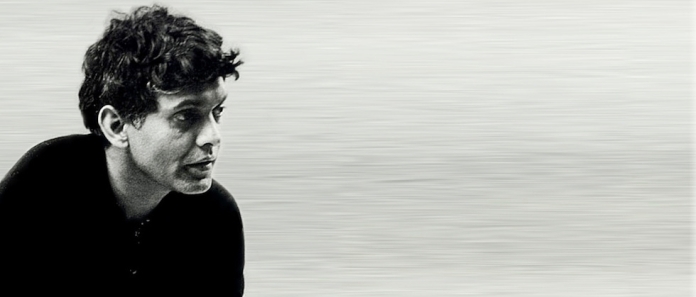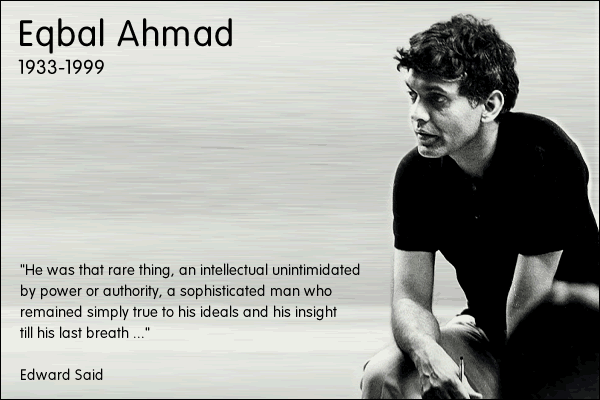[Ahmad was] perhaps the shrewdest and most original anti-imperialist analyst of the post-war world, especially in the dynamics between the West and the post-colonial states of Asia and Africa.
Edward Said
In two weeks, the universe will count fifteen years without Eqbal Ahmad.
Ahmad was a Pakistani political scientist, writer, journalist, and anti-war activist. He was strongly critical of the Middle East strategy of the United States as well as what he saw as the “twin curse” of nationalism and religious fanaticism in such countries as Pakistan. In all of that and above that – Ahmad was a brave man in this new world. He opposed militarism, radicalism, bureaucracy, materialism, he stood against the things we so easily go along with – just because it’s easier that way. He wasn’t interested in what’s easy, he was interested in what’s right. And he had a unique sense for that.
Ahmad was born in the village of Irki in the Indian state of Bihar. When he was a young boy, his father was murdered over a land dispute in his presence. It was a traumatic event Eqbal would cite when he attacked material acquisitiveness.During the partition of India in 1947, he and his older brothers migrated to Pakistan. Ahmad got a degree in economics in Pakistan, and later on studied political science and Middle Eastern history, earning his PHD at Princeton.
From 1960 to 1963, Ahmad lived in North Africa, working primarily in Algeria, where he joined the National Liberation Front and worked with Frantz Fanon. He was offered an opportunity to join the first independent Algerian government and refused in favor of life as an independent intellectual.
In the 80s, he joined the faculty at Hampshire College, a very progressive school, which was the first college in the nation to divest from South Africa, in Amherst, Massachusetts, where he taught world politics and political science. He wrote and spoke a lot of the failures of the Arab nationalism. In 1980, in Beirut, he was the first to predict the exact outlines of the 1982 Israeli invasion; in a memo to Yasir Arafat and Abu Jihad he also sadly forecast the quick defeat of PLO forces in South Lebanon.
In the early 1990s, Ahmad was granted a parcel of land in Pakistan by Prime Minister Benazir Bhutto’s government to build an independent, alternative university, named Khaldunia. Upon his retirement from Hampshire in 1997, he settled permanently in Pakistan, where he continued to write a weekly column, for Dawn, Pakistan’s oldest English-language newspaper.
Since his death, a memorial lecture series has been established at Hampshire in his honor. Speakers have included Kofi Annan, Edward Said, Noam Chomsky, and Arundhati Roy.
There is a website dedicated to Ahmad’s work – Bitsonline, you can find varoius interviews, articles, and information about upcoming events and tributes there. Check it out.
Fifteen years is a lot, but the years have no power here – the universe will remember and remember – long live Eqbal Ahmad!

